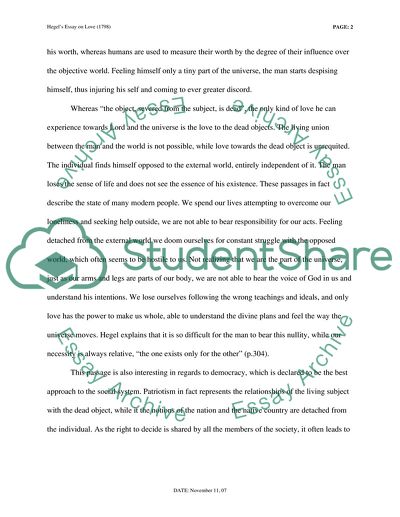Cite this document
(“Hegels Interpretation on Universal Love Research Paper”, n.d.)
Hegels Interpretation on Universal Love Research Paper. Retrieved from https://studentshare.org/philosophy/1543084-hegels-essay-on-love
Hegels Interpretation on Universal Love Research Paper. Retrieved from https://studentshare.org/philosophy/1543084-hegels-essay-on-love
(Hegels Interpretation on Universal Love Research Paper)
Hegels Interpretation on Universal Love Research Paper. https://studentshare.org/philosophy/1543084-hegels-essay-on-love.
Hegels Interpretation on Universal Love Research Paper. https://studentshare.org/philosophy/1543084-hegels-essay-on-love.
“Hegels Interpretation on Universal Love Research Paper”, n.d. https://studentshare.org/philosophy/1543084-hegels-essay-on-love.


